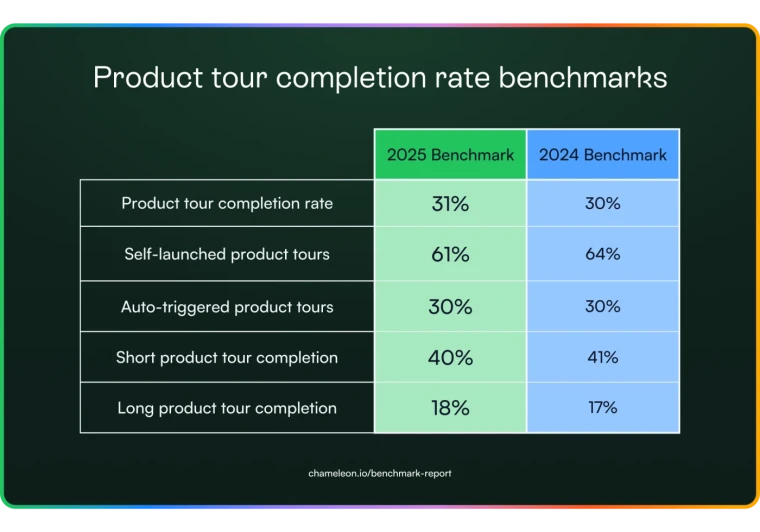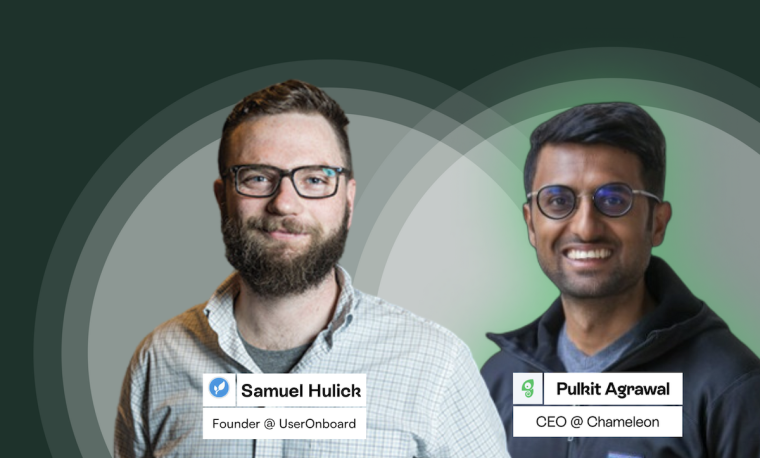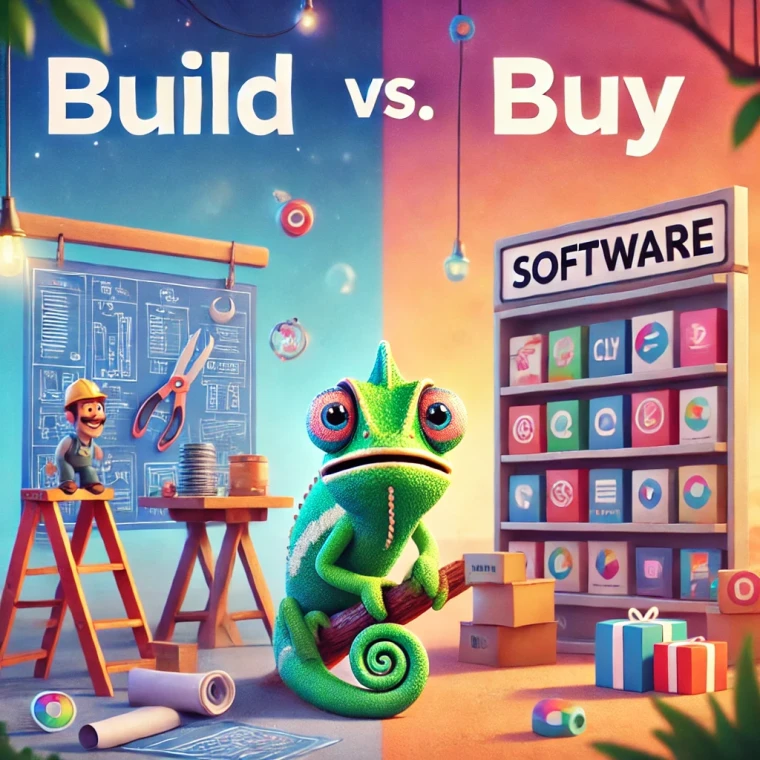Let’s be honest: most onboarding experiences are mediocre at best. They’re tedious, uninspired, and often create unnecessary friction. But, user onboarding is the gateway to successful product adoption.
That’s why we loved hosting the Chameleon User Onboarding Olympics. The competition sought to highlight the best in-app onboarding flows while revealing key strategies from industry experts.
The closing ceremony was packed with valuable takeaways, so let’s dive into the top insights on what makes onboarding exceptional—and what most products still get wrong.

1. Get users hooked, fast 🏃🏼♂️➡️
In the world of SaaS, getting users to see value quickly is everything. Leah Tharin, a powerhouse PLG advisor working with Notion VC, Toggl, and more and currently leading product and growth at GotPhoto, nailed it as a judge in our competition.
With a track record of driving success at companies like Smallpdf, where she led the core product used by over 50 million monthly active users, Leah knows exactly how to create value that sticks:

"Value means that the people using your product can make a decision—either this is for them or it isn’t. The speed at which you deliver this value directly impacts long-term revenue."
The winning flow in this category was from Rows, the current poster child for top-class PLG. Rows eliminate traditional friction by allowing users to dive straight into the experience without even needing to sign up. Imagine landing directly in the ungated and fully functional product, ready to explore. As Leah pointed out:

"These ungated experiences are the future. Instead of forcing users through a signup wall, products like Rows let them interact immediately, focusing entirely on the user and their needs."
This is onboarding at its best: cutting out the fluff and delivering instant value. And while this approach makes tracking a bit trickier, the upside—greater engagement and quicker buy-in—is worth the trade-off.
2. Personalize without the pain 🔥
Personalization is the new table stakes. Yet, many companies still rely on cumbersome forms and endless steps to gather user information. Partho Ghosh, a seasoned product executive with deep expertise in B2B SaaS, brought his insights to the table as one of our standout judges.
Currently leading Product at Uberall and with a history of driving product success at industry giants like Hootsuite and SecurityScorecard, Partho emphasized the importance of using existing data to make personalization seamless:

"There’s so much data available that we can use to personalize without asking users to fill out forms. Use LinkedIn SSO, reverse IP lookup, or pull in context from their browsing behavior. Personalization should be automatic, not a chore."
Whoop and Duolingo exemplified this strategy. Duolingo’s onboarding is a masterclass in turning what could be a tedious process into an engaging experience. It asks a series of questions—usually a UX sin—but does so in a playful way, almost like a game. The difference? Users actually enjoy it 🤩

"Duo, the owl, is your quirky guide, making sure even the friction points feel like fun. It’s a great example of how adding personality can turn a potentially annoying process into something delightful,"
3. Polished experiences win hearts 💖
Creativity in onboarding isn’t about being flashy—it’s about being memorable. Alexander Villinskyy, the founder of Super Clear—a design studio shaping the future of work for early-stage startups—brought his expertise as the final judge.
With a track record of contributing to industry-defining tools like Grammarly, Spark, and Documents, Alex knows what it takes to craft experiences that stand out and set new productivity benchmarks. His philosophy? Great design is the key to unlocking untapped potential in the economy.
He emphasized that building onboarding flows users genuinely love isn’t just about speed—it’s about dedicating time and care to get it right:

"A polished onboarding doesn’t take more time; it takes commitment to craft. Often, the time spent on releasing a well-crafted experience is the same as rushing an unpolished one. It’s about dedication, not resources."
Alike stood out for its attention to detail, using creative visuals and tailored copy that resonated with users on a deeper level. This product for cancer treatment struck a chord by understanding its audience and using empathetic language that builds trust.

"The small touches—like avoiding generic buttons and using language that reflects deep industry insights—show users that you understand them. It’s not just about the visuals; it’s about speaking their language."
4. Unique users need unique journeys 🤩
If you could tailor your onboarding flow for every single user, would you? The answer should be yes, and Eden showed us how it’s done. Their onboarding dynamically adjusts based on user input, creating a bespoke experience that feels genuinely personalized. Alexander summed it up perfectly:

"What’s more creative than having an onboarding flow that’s unique for each of the 8 billion people on the planet? That’s real personalization—when every step is customized to the individual."
This approach goes beyond traditional segmentation. Instead of choosing from a pre-set number of paths, Eden’s onboarding adapts in real-time, reacting to user input to deliver a relevant and engaging flow. It’s creativity in action, using real-time data to make each journey distinct.
Onboarding is more than one flow—it’s an experience
The User Onboarding Olympics reminded us that great onboarding isn’t about forcing users through a rigid flow but delivering quick value, personalization, and an experience that really delights.
Pulkit Agrawal, co-founder and CEO at Chameleon, is a leader who’s deeply passionate about crafting these experiences. As he put it:

"All of these in-app experiences should be delightful. Users should engage with them and think, ‘Wow, thank you for this,’ rather than, ‘Ugh, I have to do this.’"
The bar for onboarding is high, but the rewards for getting it right are even higher. By focusing on value, personalization, and creative experiences, your product can stand out in a sea of average flows. The competition may be over, but the insights we gained are just beginning to shape how we build for the future.
So the next time you design an onboarding experience, ask yourself: Is this something users will enjoy? If the answer is anything less than “Yes,” it’s time to rethink your approach. Explore our Inspiration Gallery to see more outstanding top-tier onboarding examples.
Whether you’re inspired by personalized experiences or ungated flows, Chameleon can help you bring these ideas to life. Start your free trial today and create onboarding experiences your users will love—just like the best in the industry.
Product Marketing Inspiration Gallery

SoSafe's G2 Reviews Modal

Rows' User Onboarding Tour






